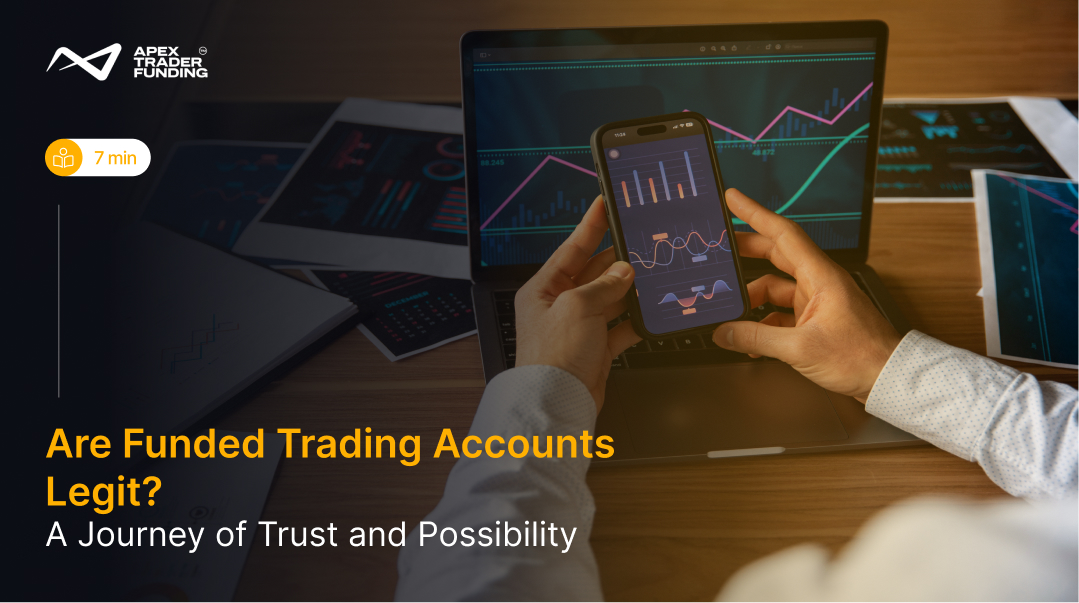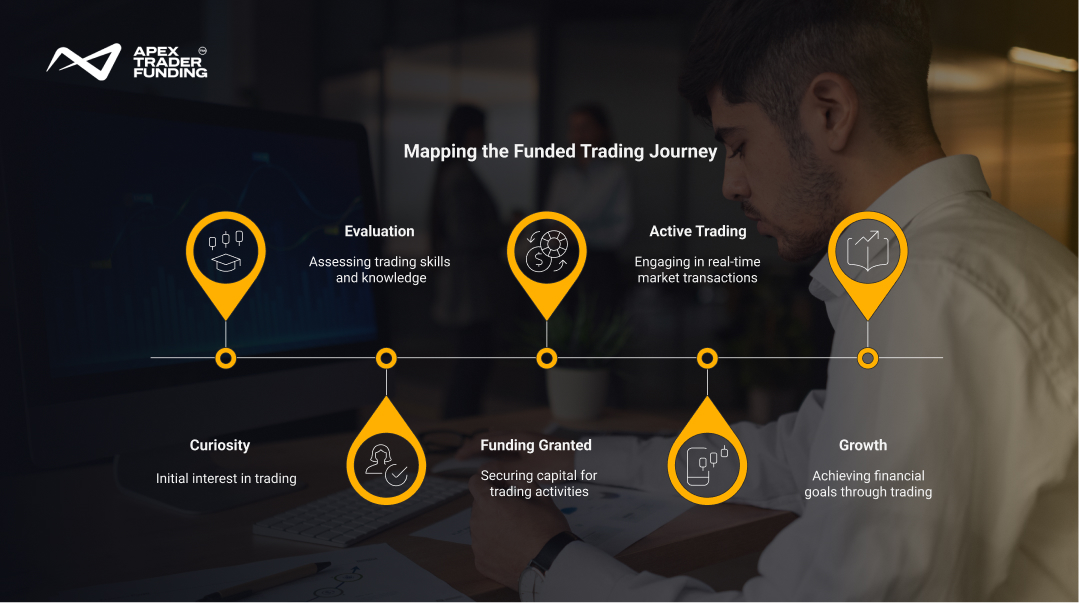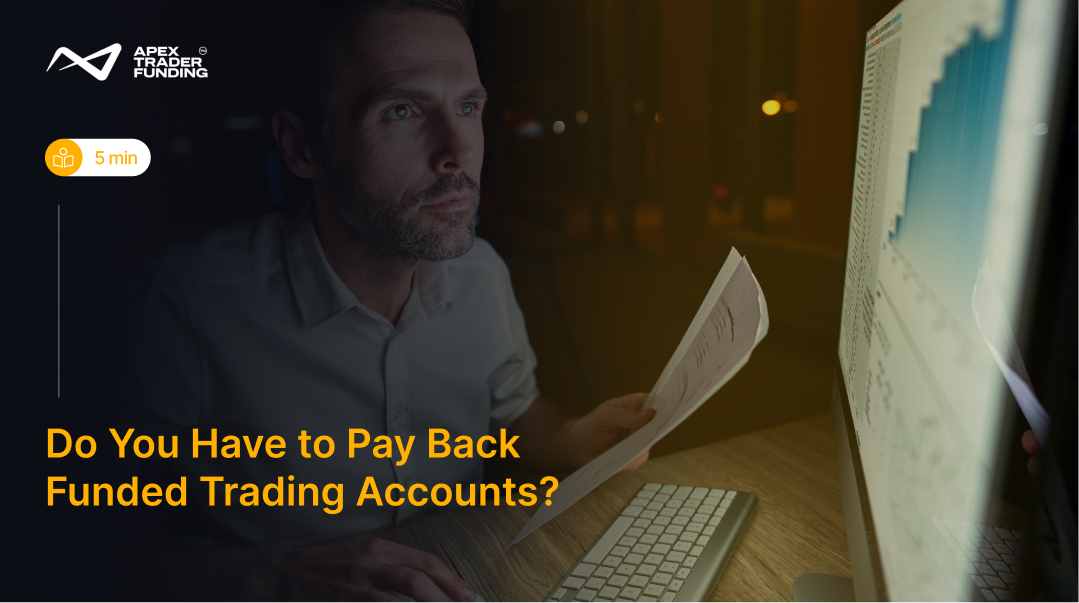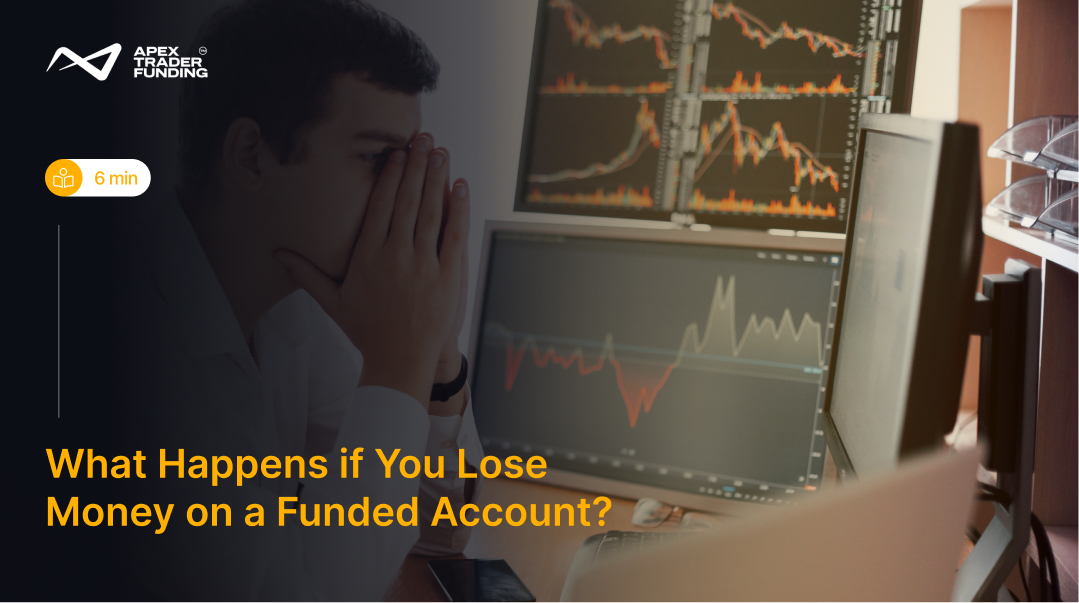
trading-inspiration | 24-08-25
In the last decade, a new question has captured the curiosity of traders worldwide: Can you really trade with someone else’s money? The idea of a funded account—where a firm provides capital to traders who prove their ability—sounds both inspiring and unbelievable. For many, it feels like a doorway to financial independence. But doubts remain. Are these accounts truly legitimate, or are they just another too-good-to-be-true promise in the financial world?
This article explores the legitimacy of funded trading while offering inspiration for those who dream of making the leap from “what if” to “why not.”
Are Funded Trading Accounts Really Legit?
Funded trading accounts are legitimate business models where firms profit from evaluation fees and profit-sharing.
What Makes People Question Funded Trading?
Skepticism is natural when money is involved, especially in trading, where risk is part of the territory. The idea of being handed thousands of dollars to trade raises common concerns:
- Is the firm genuinely providing real capital?
- What’s the catch—are there hidden costs or rules?
Expert Insight: The "catch" isn't hidden—it’s the Trailing Drawdown. For example, in an Apex 150K account, your $4,500 drawdown limit follows your peak unrealized profit in real-time. This is the primary hurdle that distinguishes professional risk managers from gamblers. While some firms use "End-of-Day" calculations, Apex’s Intraday Trailing Threshold requires you to protect your open profits, as the "liquidation line" moves up even before you close a winning trade.
- Can traders actually keep their profits, or is it just a simulation?
These questions aren’t signs of cynicism—they’re the starting point of any thoughtful trader’s journey. Understanding where the doubts come from is the first step toward finding clarity.
The Business Logic: Talent Scouting, Not Charity
To truly trust the legitimacy of funded accounts, one must understand the motive. Why would a firm risk its own money on a stranger? The answer is simple: In the financial world, capital is abundant, but skilled traders are rare.
Proprietary trading firms are not "giving away money"; they are crowdsourcing talent.
- The Problem: A firm cannot scale its profits indefinitely with just a handful of in-house traders.
- The Solution: By opening evaluations to the public, the firm acts as a global talent scout. They filter through thousands of applicants to find the top 1% who possess actual discipline and strategy.
- The Mutual Benefit: The trader gets access to leverage they could never raise personally, and the firm gets a percentage of the profits generated by a diversified pool of global talent.
This is not a lottery; it is a meritocracy. The firm’s business model relies on finding consistent traders who can manage risk, effectively turning the "funded trader" into a remote asset manager for the company.
Signs of Legitimacy in Funded Accounts
Not every opportunity is equal, but certain markers show when a funded trading program is on solid ground. Legitimate funded accounts often:
- Outline clear rules upfront – Nothing is hidden in fine print; requirements are explained transparently.
- Reward skill, not luck – Traders advance based on risk control and consistency, not random winning streaks.
- Provide real payouts – Profits earned aren’t hypothetical; they’re shared with the trader.
- Offer structured support – Coaching, performance tracking, and tools show an investment in traders’ growth.
These signs don’t just prove authenticity—they also inspire trust, turning skepticism into motivation.
Stories That Spark Confidence
Across the globe, countless individuals have transitioned from cautious learners to confident traders through funded programs. These aren’t stories of overnight riches; rather, they’re journeys of resilience. One trader may start with repeated evaluation setbacks but eventually grow into consistency. Another might discover that the greatest lesson wasn’t making money, but learning to manage losses.
Each story serves as proof that legitimacy isn’t just about payouts—it’s about the growth and belief these programs foster.
Why the Debate Won’t End Anytime Soon
Doubt will always linger in the trading world—and not without reason. Some firms do exaggerate, over-promise, or set impossible rules. As long as those outliers exist, doubt will remain. But the persistence of the debate is itself evidence that funded trading has changed the landscape. If it weren’t real, the concept would have faded long ago. Instead, it’s grown, adapted, and gained recognition as a genuine path for those willing to put in the effort.
Mapping the Funded Trading Journey

Funded accounts often sound abstract until you break them down step by step. Here’s a simple roadmap of how the process usually flows, turning doubt into action:
The Legitimacy Checklist
The Inspirational Takeaway
So, are funded trading accounts legit? The answer is yes—when approached with caution, awareness, and commitment. They are not shortcuts to wealth, but rather stepping stones for those ready to match opportunity with discipline.
For many traders, funded accounts are not just about legitimacy, but about possibility: the possibility of turning skill into capital, and capital into experience. That shift—from doubt to determination—is what truly makes funded trading inspirational.
Looking Ahead to Your Trading Journey
If funded trading feels like the right step, Apex Trader Funding offers account options that let you focus on skill and discipline instead of large upfront deposits. The key is choosing the setup that matches your trading style:
- Explore the 150K Rithmic account if you’re looking for strong market depth and reliable trade execution.
- Try the 100K Tradovate account if intuitive charting and order flow tools help you stay in sync with the market.
- Consider the 100K WealthCharts account if advanced analytics and insights fit your decision-making approach.
With Apex, it’s not only about funding—it’s about creating the environment where traders can build confidence, consistency, and long-term growth.
FAQs
Yes—but not in the way most new traders think. Funded trading accounts provide access to a firm’s capital, which means when you place trades, you’re trading in a simulated environment that mirrors live market conditions. Once you pass the evaluation and qualify for a live funded account, your performance is tied to the firm’s real money risk. Profits you generate are shared according to the firm’s payout structure, while losses are absorbed within the account limits set by the firm. This balance—real market exposure with risk controls—allows traders to experience professional-level trading without putting their personal savings at stake.
Yes, legitimate funded trading firms do pay out profits—but only after traders meet the rules and conditions set in their programs. Payouts usually follow a clear schedule (weekly, biweekly, or monthly), and profits are distributed based on the agreed split between the trader and the firm. Many traders underestimate that consistent rule-following—like respecting daily loss limits or position sizing—is just as important as generating profits. A firm’s credibility can be judged by its transparent payout policies, payment methods, and trader testimonials. If these are clear and verifiable, it’s a strong sign that the payouts are reliable.
It depends on the firm’s rules. Some proprietary trading firms welcome scalping because it shows quick decision-making and market adaptability, while others restrict it due to the higher risk of breaking loss limits or triggering platform stress. Traders considering scalping should carefully review the firm’s rulebook and platform conditions before adopting this approach. For example, certain firms may allow scalping only on specific trading platforms or during defined market hours. If scalping is central to your strategy, always verify that the firm explicitly supports it—otherwise, you could risk violating terms without realizing it.
The 1% rule is a risk management guideline that advises traders to risk no more than 1% of their account balance on a single trade. For example, if your account has $10,000, the maximum risk per position would be $100. This principle helps protect capital from large drawdowns and ensures traders can withstand losing streaks without wiping out their accounts. While not a strict law, many professional traders follow the 1% rule as a way to build discipline and consistency over time.
Related Blogs

trading-inspiration | 29-08-25
Do You Have to Pay Back Funded Trading Accounts?
You are never personally liable for trading losses in a funded account because you are technically an independent contractor trading...
Read more
trading-inspiration | 05-09-25
What Happens if You Lose Money on a Funded Account?
Every trader dreams of gaining access to more capital. Funded accounts make this possible, offering a chance to trade larger...
Read more
trading-inspiration | 08-09-25
How to Become a Funded Trader? - Step by Step Guide
Every trader begins with the same dream: managing larger capital and unlocking greater opportunities. For many, limited personal savings make...
Read more
